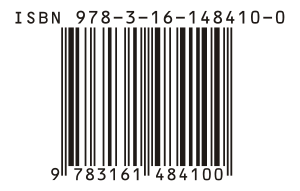

According to some reports, it just became a whole lot more expensive to be an author.
Bowker, the US agency overseeing ISBN numbers, announced this week that a block of ten numbers would go from $250 to $295, which caused somewhat of a firestorm of criticism from both authors and industry watchers. As some people have rightfully asked, if less authors are attempting traditional publishing, and those authors are also taking advantage of free ISBN numbers provided by sources like Amazon, CreateSpace, and Smashwords, wouldn’t the demand have gone down and result in a drop in price rather than an increase?
While there is no doubt that ISBN numbers serve a distinct purpose, such as making a print book trackable in terms of sales data, many self-published and hybrid authors have discovered that their needs don’t coincide with an ISBN number. Certainly those standardized categorical identifiers are important for bookstores and libraries, but as authors have discovered, their books aren’t getting into bookstores anyway, at least not without massive amounts of legwork involved in contacting individual store owners and convincing them to stock their books.
If the very function of an ISBN number doesn’t apply to a work, and if other sources are willing to provide an equivalent number for a book, why buy one? That question is becoming harder and harder to answer, especially in a climate when authors are shifting their publishing goals. The once elusive but highly sought after bookstore shelf space is no longer the Holy Grail of publishing that it once was, especially in light of increasing online sales and the understanding that even Big Five titles struggle for prime shelf space in retailers’ stores.
While it goes without saying that ISBN numbers have certainly not gone extinct, it still leaves authors questioning why they’re so expensive. This comes with the understanding that US authors and publishers can buy a single ISBN number for $125, and blocks of numbers at higher prices but better per-number rates; there is a processing fee along with the cost of the ISBNs. Unfortunately, those numbers are non-transferrable, meaning a small group of self-published authors or indie publishers cannot get together and buy a block of ten numbers without putting one person’s name on all ten permanently. An author could still use the number someone purchased on his behalf, but the purchaser would be registered as the publisher.
What’s also raising ire among critics of the model is the price in the first place. While the US is certainly not the only country whose registering agency charges a fee for the numbers, many countries don’t charge at all and do not require a five-business-day wait time to receive it. In the UK a block of ten numbers will cost about one hundred dollars less than in the US, and Australian authors have the option to purchase the numbers individually for around $40, rather than having to buy ten (but ten numbers will only cost $80 with the incentive pricing).
Mercy Pilkington is a Senior Editor for Good e-Reader. She is also the CEO and founder of a hybrid publishing and consulting company.
